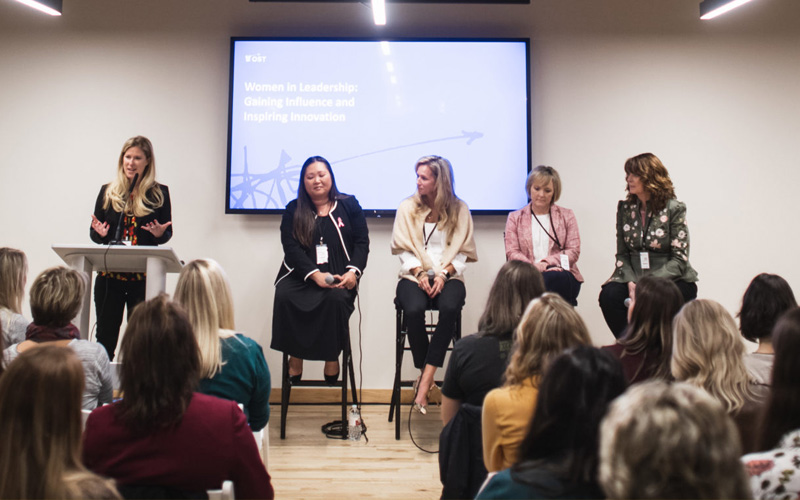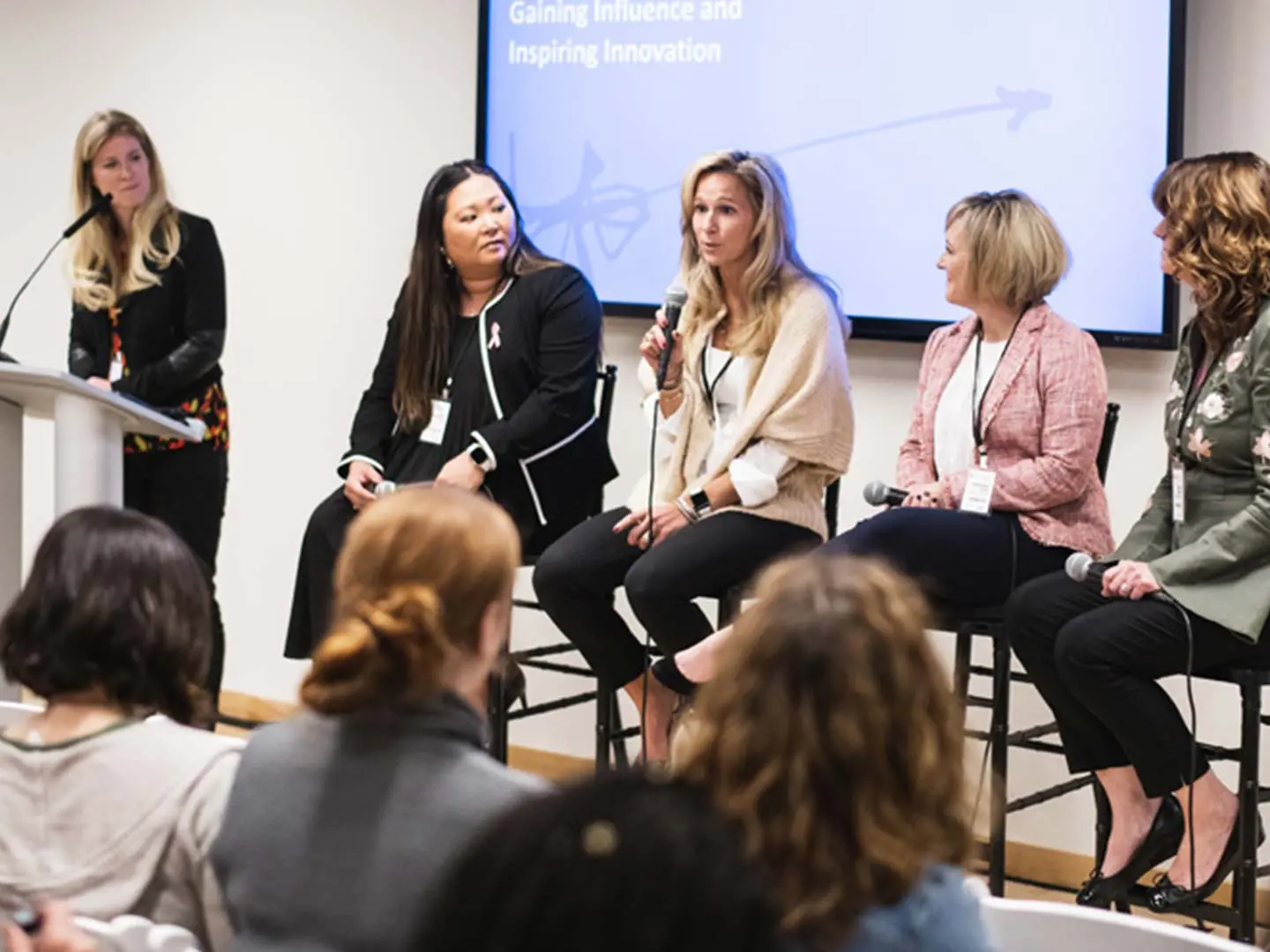You know the saying that there are no stupid questions? Tammylynne Jonas, Global CIO of Self Esteem Brands, disagrees. “Be aware of your audience and be prepared for the environment you are in,” she said. Ask questions accordingly.
Jonas was one of four leaders who spoke during Twin Cities Startup Week’s “Women in Leadership: Gaining Influence and Inspiring Innovation” panel. Vervint’s Lisa Jilek, VP of Sales and Marketing, moderated. The event was an opportunity for women to network, share ideas, and be inspired by four successful leaders.
Listen to the full audio of the event here.

Career Advice for Women, From Women
Jonas shared her perspective on the importance of knowing your audience before you dive into your questions for them, and other panelists had additional insights and advice for women at every stage of their careers.
For Beth Klawitter, Sr. Director of Customer Success and Operations at Attivo Networks, a bad move would be staying in a role that is safe and secure and not being your own advocate.
“Especially at a smaller organization, I think it’s so important to chart your own goals and make sure leadership is aware of them,” she said.
Kathleen Miner, VP of Solutions Marketing at Thomson Reuters, said she has been happier and more successful at an organization when she doesn’t solely evaluate an opportunity by its title or compensation. Instead, she focuses on the individual she is working for.
Tonia Teasley said never to listen to those who say, “We’ve tried that already. It will never work.”
“I’ve heard that a lot in my career,” said Teasley, VP and General Manager at Capella University. “Fortunately for me, I’ve taken that as a challenge, not a deterrent, because it has actually allowed me to take on things people thought couldn’t be done.”
It took Teasley a long time to learn, but this lesson was invaluable: “If you are constantly advocating for your own viewpoint without consideration for others’ perspectives, you are going to run into obstacles,” Teasley said.
Eventually, she came to realize that she doesn’t know everything that everyone else in the room knows. And that’s okay. Asking questions and making sure all the voices in the room are heard is the best way to influence across the organization.

The Importance of Women in Leadership
Although women make up more than half of the United States population, women lag far behind men when it comes to serving in leadership positions in companies.
For example, according to the Center for American Progress, in the legal profession, women are 45% of associates but only 22.7% of partners and 19% of equity partners. In medicine, women represent 40% of all physicians and surgeons but only 16% of medical school deans. In the financial services industry, they constitute 61% of accountants and auditors, 53% of financial managers, and 37% of financial analysts. But they are only 12.5% of chief financial officers in Fortune 500 companies.
Globally, the number of women in leadership roles is increasing in 2019, according to Catalyst.org. This year, 29% of senior management roles are held by women, the highest number ever on record. But in the United States, where women make up nearly half of the labor force, they represent only slightly over a third (40%) of managers, according to a Catalyst.org article citing the Bureau of Labor Statistics.
Be Influential
Being influential means building a track record of collaborating, listening, and working well with other people.
“If you do that over time, your ability to influence others only increases,” Miner said. “No matter what you’re trying to accomplish, assume the person on the other side of the table is there with positive intentions, and it’s amazing what actually starts to happen.”
To hear the full conversation, listen to the podcast now!


